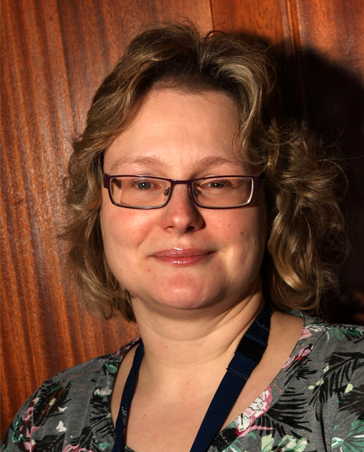Dr Helen Bourne, Medical Immunologist

Can you tell us what immunology is?
The World Health Organisation (WHO) definition of immunology is the clinical and laboratory activity dealing with the study, diagnosis and management of patients with diseases resulting from disordered immunological mechanisms, and conditions in which immunological manipulations form an important part of therapy.
What does your average working day involve?
My day begins at 8.30 and I spend my mornings seeing patients. My clinical work is based around the outpatient department. I am in clinic for at least 50% of the working week assessing patients with possible autoimmunity, immunodeficiencies and patients already on immunoglobulin replacement. I also see patients with allergies and patients undergoing challenge procedures and desensitisation.
We offer a ward consultation service for inpatients which needs to be fitted in around the outpatients’ clinic. My daily commitments including clinics and meetings (clinical, laboratory and educational) are fairly fixed so I can generally plan my working day and I know when I have a particularly challenging week to balance with family commitments. Knowing how to manage and prioritise your time is crucial as I still need to balance multiple phone calls requesting patient advice on laboratory tests and the obligatory multiple emails around this.
I also support an immunology laboratory team within our blood sciences department and provide medical students and trainee teaching, I also deliver clinical trials although on a small scale as this needs to fit around the clinical work.
Why did you choose this specialty?
My initial career path was within paediatrics; however, at the time of choosing a registrar post I had decided I wanted a change with more variety in my working week. I explored chemical pathology, but decided on immunology. I was attracted to the speciality by the mixture of opportunities, varying between clinical, laboratory, teaching and research.
What do you enjoy most about your job and specialty?
I enjoy the challenge of the speciality and very often patients appear in the clinic because they need specialist diagnosis. There are few clinical trials looking at the evidence for many of the rare conditions that we manage. This can often involve the need for a literature update to identify if there have been any changes or new case reports. The work is outpatient based which gives the predictability of a fairly fixed working day but may require additional time at the end of clinics to reflect on particularly difficult or challenging consultations. I enjoy reading about immunology and I still find it challenging as so much is still unknown.
Do you take part in other pathology related activities?
I have a role in education with Health Education North East, supporting trainees from other pathology disciplines. I share my experiences of pathology with other trainees and have participated in multiple careers fairs and public engagement events. I still find it difficult at careers events that trainees often have made their mind up that pathology is not for them without ever really finding out what it’s really like.
What advice would you give to students looking to enter your field?
My advice would be to ASK! Most people in immunology found the speciality by accident. I would suggest speaking to local consultants in the speciality and attending a few clinics to find out what it is really about.
